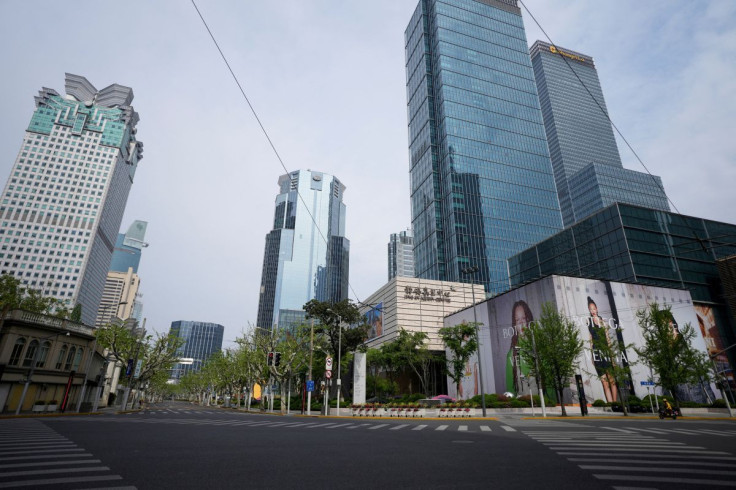The End Of COVID Lockdowns Won't Solve China's 3 Big Problems

The end of COVID-19 lockdowns will help the Chinese economy recover.
Still, it won't solve the country's three big problems: The burst of the property bubble, the soaring debt and the crumbling population pyramid, which undermine the county's long-term economic growth prospects.
David Yu, professor of finance at New York University in Shanghai, sees a good year ahead for the Chinese economy following the lifting of COVID-19 restrictions on Jan. 8.
"There is optimism in the air as previous economic drivers such as lockdowns have been taken down and local governments are now full-fledged attention to the economy with a full focus on jump-starting the economy," he told International Business Times. "We have now seen outreach for foreign investments and tour visits that have not been seen for some time."
Yu sees opportunities for growth in industries that will benefit from the opening of the economy, like tourism and related industries. "They are prepared for a big splash compared to the doldrums of the past few years," he said.
Professors Allen J. Morrison and Stewart Black, authors of the upcoming book "Enterprise China: Adopting a Competitive Strategy for Business Success," see a good year ahead for the Chinese economy.
"It is easy to be optimistic that the Chinese economy will do better in 2023 than it did in 2022," they said. "Motivated by pent-up demand and an eagerness to recoup lost earnings, Chinese companies call back workers and add shifts. Moreover, with border restrictions lifting, waves of Chinese tourists are returning to Japan, Australia, Europe and the U.S. As a result, many Chinese CEOs are buoyant that 2023 will be a boomerang year for the economy."
Nonetheless, they see some of the country's chronic problems remaining that constrain growth, like the burst of the property bubble, with residential property sales cratered, down over 30% nationwide in monetary value in the first half of 2022. "Stalled construction, rising interest rates and weak project financing have left tens of millions of unfinished housing units," they said.
For years, a construction boom has been a critical driver of the country's feverish growth through what economists call the positive multiplier and accelerator effect. Conversely, stalled projects have set in motion negative multiplier and accelerator effects up and down the supply chain into sectors such as home furnishings, cement and eventually, on the economy and consumer confidence.
The decline in the property sector is made worse by soaring debt, China's second chronic problem.
China's nonfinancial debt stands at $51.87 trillion or 295% of the GDP, higher than Japan and the U.S., according to statistics from the Bank for International Settlements.
Moreover, most of the debt is in the broader government sector. It's money owed to state-owned banks by State-Owned Enterprises (SOEs) and Town Village Enterprises (TVEs), meaning that one branch of government owes money to other branches of government. And that makes it hard for Beijing and the provincial and local governments to deal with the situation with debt haircuts, as was the case with the Greek government a few years ago.
Then there's the crumbling of the country's population pyramid, the swelling of the ranks of people at retirement age, and the thinning of the people at working age.
"The number of working age population in China peaked in approximately 2015 and is set to decline by 13% by 2030 and continue out to 2050," Morrison and Black said. At that point, they said, "it would have declined by more than 200 million workers, more significant than the total working age population of Germany, France, the United Kingdom, Italy, Belgium, the Netherlands and Switzerland combined!"
As Japan's recent history confirms, declining property values, soaring debt and a declining working-age population is a dangerous cocktail for China's economy.
Moreover, these problems change the status quo for Beijing and its ability to guide economic growth. "In the past, the State believed that if it set the targets and guided the economy with a heavy hand, it would reach its goals," Morrison and Black added. "However, those days may be over."
Related Articles





















